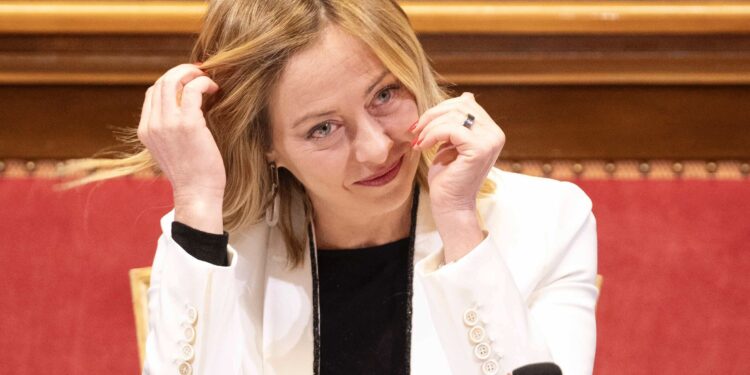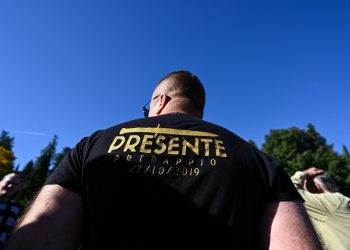Rome – Rome opens the doors of the Senate to the Italy-Africa Summit, the first international event Italy is hosting since assuming the G7 presidency. Here, Premier Giorgia Meloni presents the Mattei Plan to African heads of state and government. The medium- and long-term goal, she explains, is to show that “we are aware of how interconnected are the destinies of our two continents, Europe and Africa. And that we can grow together.”
In the hemicycle, supporting the project, sit the heads of the European institutions, Ursula von der Leyen, Charles Michel, and Roberta Metsola.
“We want to build a peer-to-peer cooperation in which Europe must reject the paternalistic approach it has often shown, far from any predatory temptation, but also from that “charitable” approach that is ill-suited to its extraordinary potential for developing the Continent,” Meloni reiterates.
The premier cashes in on the applause of the president of the European Council, Michel: “The plan fits into the paradigm of the relations we want to weave with Africa, with the principle of a partnership of equals, with respect and trust,” he says.
European Commission President von der Leyen also says she is grateful to Meloni for placing cooperation with Africa “at the heart of her foreign policy and her G7 presidency.” She considers the new Plan “an important contribution to this new phase of our partnership, complementary to the European Global Gateway.” The Global Gateway is the €300 billion investment strategy in third countries, about half of which is earmarked for Africa. Von der Leyen insists that this is “a moment of intense and renewed cooperation between Africa and Europe. Because our interests are more aligned than ever. We all need to move to clean energy and adapt to climate change. We all need to train our workforce for the jobs of tomorrow,” she added.
The Italian prime minister wants to build on the insight of Enrico Mattei, who liked to say that “ingenuity is seeing possibilities where others see none,” in order to, she says, “write a new page in our relations.”
The Plan can count on 5.5 billion in credits, gift transactions, and guarantees: three come from the Italian Climate Fund and two and a half from development cooperation resources. These will be joined by those that will (hopefully) come from international financial institutions, multilateral development banks, the European Union, and other donor states, which have already reportedly come forward to support joint projects. But there will also be, within the year, a new financial instrument, together with Cassa Depositi e Prestiti, to facilitate private sector investment.
There are five pillars: education and training, health, agriculture, water, and energy. “It is an ambitious but extremely concrete plan that will start with pilot projects in some African nations and then extend to the rest of the Continent. A Plan of interventions with which we want to make our contribution to unleashing African energies, also to guarantee the young African generations a right that has been denied until now: the right not to be forced to emigrate and sever their roots,” Meloni says.
The African Union, however, calls for more concrete action and less talk. “We are not satisfied with mere promises that are then not kept,” thunders Moussa Faki Mahamat, president of the commission, who complains that he was not consulted in the drafting: “We would have liked to be consulted, now we are ready to discuss the modalities.” The Plan is not a “closed box, to be imposed and decided from above,” Meloni retorts: it is designed, she explains, as a “programmatic platform open to sharing and collaboration with African nations, both in the definition phase and in the implementation of individual projects.” For the first time, the Italy-Africa Conference (previously held at the ministerial level) is elevated to a summit and opens to the participation of heads of state and government. “It is a choice that reaffirms the centrality and relevance that Italy attributes to the relationship with African nations,” the premier claims.
Today’s “is not a point of arrival, but a fundamental moment of confrontation with all the summits of the African continent, in order to do more and more,” points out Foreign Minister, Antonio Tajani, because, he recalls, “the global challenges are many and increasingly complex.” Three wars and the situation in the Red Sea have significant “strategic and economic” repercussions on African countries.
One of the myths the program wants to dispel is that Africa is poor. Nothing more than a “distorted narrative,” for Meloni, who reminds us that the continent holds 30 per cent of the world’s mineral resources, 60 per cent of arable land. Sixty per cent of its population is under the age of 25, this also makes it a land of “enormous human capital potential,” she points out. But it is also a huge continent, encompassing very diverse needs.
In the energy sector, Africa “is a continent that is unrivalled,” confirms the president of the European Parliament, Roberta Metsola. “Europe has an energy supply problem,” she recalls, “and Africa has the potential to be a massive supplier of renewable and green energy.” A point that also applies to raw materials and rare earths: “We can grow together, sustainably, not at the expense of each other.”
English version by the Translation Service of Withub









![Una donna controlla le informazioni sul cibo specificate sulla confezione [foto: archivio]](https://www.eunews.it/wp-content/uploads/2014/12/Etichette-alimentari.jpg)

